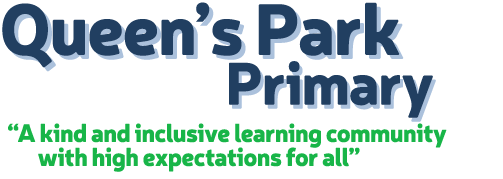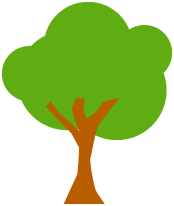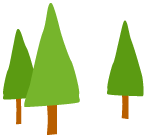CURRICULUM OVERVIEW AND APPROACH
At Queen’s Park Primary School, we recognise and value individual differences in an inclusive learning community. Our belief in community, creativity, environment, and aspiration underpins our curriculum and reinforces our aim to nurture children to be caring, lifelong learners.
While we rigorously track the delivery of the objectives from the National Curriculum and Early Years Foundation Stage Curriculum, we go the extra mile to ensure that these objectives are a part of our offer and pride ourselves on a far broader offer which is presented in a stimulating and enjoyable manner. Our talented teachers are dedicated to creating an engaging learning environment where our pupils can acquire relevant knowledge, develop essential skills, and gain a deep understanding that prepares them for life in modern Britain.
We understand that when children are actively engaged and having fun while learning, they are more likely to retain information and develop a genuine passion for education. By incorporating interactive activities, hands-on experiences, and creative approaches, we make sure that our children are motivated and excited about their learning journey.
In addition to delivering the curriculum objectives, we also place a strong emphasis on cultivating an appreciation for modern British life. We believe that understanding cultural heritage, embracing diversity, and being informed about the society we live in are crucial aspects of education. Our curriculum includes topics that explore history, literature, current events, and social issues, allowing our children to gain a deeper understanding of the world around them and develop into well-rounded, responsible citizens.
By combining the delivery of curriculum objectives with a sound knowledge of our community and engaging and enjoyable teaching methods, we provide our children with a holistic education. We want them to not only acquire knowledge and skills but also to foster a lifelong love for learning and a genuine appreciation for the diverse and dynamic society they are a part of.
We broaden the experience and perspective of our children in order to raise aspiration and demonstrate opportunities, such as through our links with the National Theatre, cultural community groups and local connections through, for example the “Let’s Dance” and Brighton Children’s parade as well as trips and visits to places such as the science museum, the seven sisters county park, and places of historical interest..
The curriculum also provides children with an interesting vibrant learning experience, creating lifelong memories and teaching children lifelong learning skills such as resilience, perseverance, creativity, motivation reflection, problem solving and team work which will set them up for their future, and face the challenges in modern society.
We are continually improving our curriculum and are currently focusing on how we can ensure it reflects the needs of our current community and embraces current local and national issues such as Black Lives Matter. As part of our school of sanctuary approach, we have strong links to the Ethnic Minority Achievement Service, who support us in leading staff meetings, working with individual teachers, undertaking learning walks and meeting with parents.
We believe that children learn by doing, so we take them on of educational visits, invite speakers into school, and bring in artefacts and interesting objects. We incorporate theme weeks to foster an understanding of why they are learning skills and knowledge and are developing links with the community so that children understand the world of work.
We make use of the local area such as the beach and the wildlife centres to support our learning. We believe in teaching children that the environment needs protecting and we have an eco-group led by a climate change aware teacher.
We aim to provide our children with the skills, knowledge, and aspiration, they need to be successful when they leave us to go onto the secondary phase of education and the skills, knowledge, and ability to be successful in whatever they choose to do.
To find out more about our curriculum offer at Queen’s Park, please speak to Ms. Peacock, Ms. Whitehead or Mrs. Gale.
Reading
Reading is a key part to our curriculum. We read across subjects, through class readers and in guided reading sessions. In guided reading sessions, children all read the same book. Our children have discussed how they enjoy their reading community, sharing thoughts, discussions and ideas about the texts they are studying.
All pupils can also borrow a book from the school library and class book corner that their adult can read with them at home.
Phonics
In Reception, Year 1 and 2, phonics is taught in groups for 30 minutes daily. We follow the accredited Twinkl scheme. Additional daily catch-up interventions take place to help children who need to overlearn.
Twinkl phonics introduction for parents – This document will define key terminology that we use in school and your children will use. It explains how synthetic phonics works and outlines the expectations for what children should be able to do by the end of each level. Additionally, there is information about the Year 1 phonics screening check and suggestions for how to help your child at home.
Please take a look at the link below to find out how we pronounce the phonetic sounds.
Twinkl YouTube video for the correct sound pronunciation
Spelling
Key Stage 2 teach spelling using the Spelling Shed scheme.
Maths
In Maths we follow a mastery approach through a cycle of – high quality group based instruction, monitoring, correction, enrichment and review. We follow a clear progression of skills to ensure the development of number skills and follow a clear plan to develop number fluency.
Please find the progression of skills below and the fluency plan. If your child is fully confident on the fluency focus, they will be given a further challenge.
Maths Progression Document 2022-23
Queen’s Park Addition and subtraction calculation policy
Queen’s Park Multiplication and Division calculation policy
wrm-reception-scheme-guidance-for-teachers
If you would like to find out how you can help at home with your child’s maths, please click on the link here.
Ways to Help with Maths at Home
If you have any further questions about the curriculum please contact us on admin@queenspark.brighton-hove.sch.uk
QPPS 2022 – 23 Curriculum Poster Reception[9453]
QPPS 2022-23 Curriculum Posters Year 1
QPPS 2022-23 Curriculum Posters Year 2
QPPS 2022 – 23 Curriculum Posters Year 3
QPPS 2022- 23 Curriculum Posters Year 4



